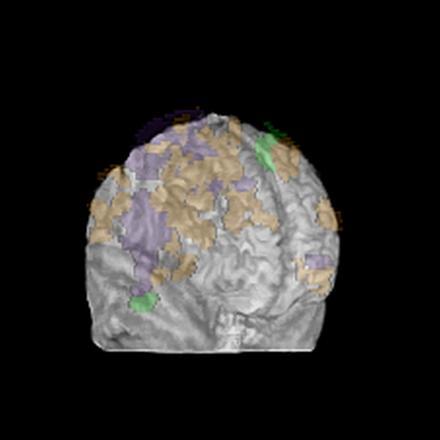neurosciencestuff:“Fuzzy thinking” in depression & bipolar disorder: New research finds effect i
neurosciencestuff:“Fuzzy thinking” in depression & bipolar disorder: New research finds effect is realPeople with depression or bipolar disorder often feel their thinking ability has gotten “fuzzy”, or less sharp than before their symptoms began. Now, researchers have shown in a very large study that effect is indeed real – and rooted in brain activity differences that show up on advanced brain scans.What’s more, the results add to the mounting evidence that these conditions both fall on a spectrum of mood disorders, rather than being completely unrelated. That could transform the way doctors and patients think about, diagnose and treat them.In a new paper in the journal BRAIN, researchers from the University of Michigan Medical School and Depression Center and their colleagues report the results of tests they gave to 612 women – more than two-thirds of whom had experienced either major depression or bipolar disorder. The researchers also present data from detailed brain scans of 52 of the women, who took tests while brain scans were conducted.The number of patients involved is large for this kind of mental health study – which makes the findings more meaningful. The researchers pooled data from several U-M studies, including the Prechter Longitudinal Study of Bipolar Disorder. They focused on results from women to take gender differences out of the mix.Seen as groups, women with depression or bipolar disorder did equally badly on the test, which required sustained concentration. The test asked them to react rapidly when certain letters flashed briefly on a screen, amid a random sequence of other letters. Compared with the group with no mental health conditions, the groups with either diagnosis lagged noticeably on this standard test of cognitive control.And while many individual women with depression or bipolar scored as well on the test as healthy participants, nearly all the test-takers in the bottom 5 percent of performers had one of the two mood disorders.On the brain scans, the researchers found that the women with depression or bipolar disorder had different levels of activity than healthy women in a particular area of the brain called the right posterior parietal cortex. In those with depression, the activity in this area was higher than in healthy individuals, while in those with bipolar disorder it was lower. The area where the differences were seen helps control “executive function” – activities such as working memory, problem solving and reasoning.“In all, we show a shared cognitive dysfunction in women with mood disorders, which were pronounced in the cognitive control tests and more nuanced in scans,” says Kelly Ryan, Ph.D., a U-M neuropsychologist and lead author of the study.“These findings support the idea of seeing mood disorders dimensionally, as a continuum of function to dysfunction across illnesses that are more alike than distinct,” adds Ryan, who sees patients as a clinical assistant professor in the U-M Department of Psychiatry. “Traditionally in psychiatry we look at a specific diagnosis, or category. But the neurobiology is not categorical – we’re not finding huge differences between what clinicians see as categories of disease. This raises questions about traditional diagnoses.” -- source link
Tumblr Blog : neurosciencestuff.tumblr.com
#mental health
